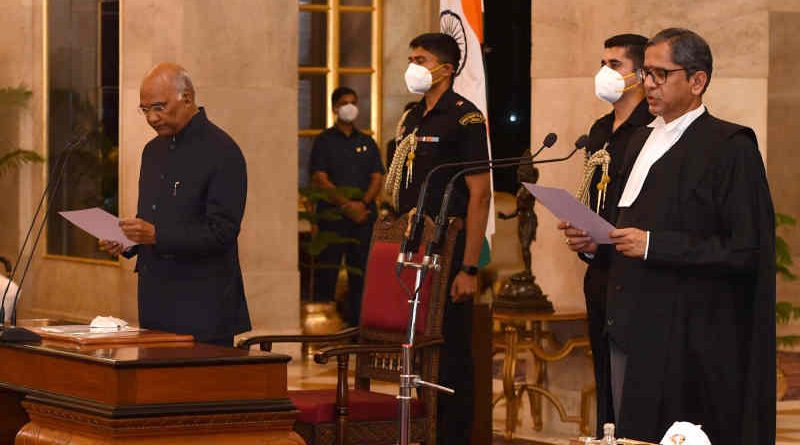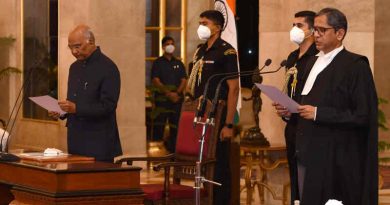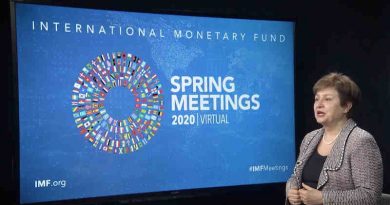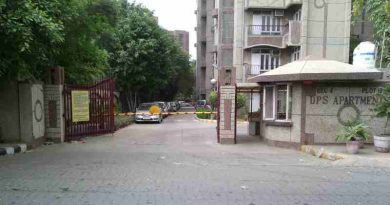Corrupt Cops Must Be Jailed: Chief Justice Ramana
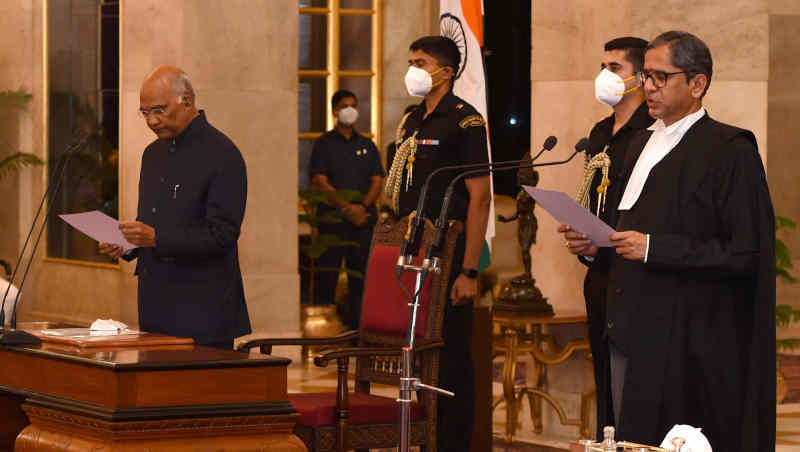
Since judges only issue shallow statements instead of sending corrupt officials to jails, corruption has been increasing exponentially in India.
By Rakesh Raman
The Chief Justice of India (CJI) NV Ramana said today (September 27) that police officers – who collude with the government of the day and make money illegally – inevitably face payback time when there is a change in guard.
Chief Justice Ramana’s court was hearing the extortion case of a suspended IPS (Indian Police Service) officer Gurjinder Pal Singh who had filed a plea against arrest in a case of disproportionate assets and sedition filed by the Chhattisgarh Government.
Chief Justice Ramana said that such cops must not be protected but must be jailed, though he allowed the police officer interim protection from arrest. This is the third such case in which Gurjinder Pal Singh has sought the Supreme Court’s protection.
According to an NDTV report of September 27, the court had granted him interim protection in the two earlier cases. The next hearing in the case is on October 1.
Since judges only issue shallow statements instead of sending corrupt officials to jails, corruption has been increasing exponentially in India. Recently, Chief Justice Ramana has made a slew of comments on the lousy working of the police and politicians. However, he has not used the law to punish the culprits.
Most judges in India lack courage to take punitive action against corrupt politicians and top government functionaries. They issue only random statements in the courts or in their academic lectures.
Recently, Chief Justice Ramana said that the right of people to change those in office through elections was no “guarantee against tyranny” of the elected and argued that democracy and its benefits could only be ensured by giving space to both “reasoned and unreasonable” public discourse.
Ramana also expressed concern at custodial torture saying that the threats to human rights and bodily integrity are the highest in India’s police stations.
He highlighted that custodial torture and other police atrocities still prevail despite Constitutional guarantees, adding that the lack of effective legal representation at police stations is a huge detriment to arrested / detained persons.
A local court in Delhi also commented on the careless working of the police officials. The court said that the standard of investigation into a large number of 2020 northeast Delhi riots cases is “very poor” as the police did not bother to take the investigation to a logical end after filing half-baked charge sheets.
As a result, the court observed in an order dated August 28 that the accused, who have been named in multiple cases, continue to languish in jails. According to reports, Additional Sessions Judge (ASJ) Vinod Yadav made the observations while framing charges against a man accused in the communal violence on February 25, 2020 in Delhi.
The judge sought the intervention of Delhi Police Commissioner while complaining that in a majority of cases the investigating officers (IOs) have not been appearing in court.
Chief Justice Ramana also observed on August 26 that police officers in India collude with the ruling party to harass political opponents and critics of the government. Holding police responsible for this disturbing trend, the Supreme Court asserted that police officers work as the voice of their political masters instead of following the rule of law.
As most courts in India have lost their relevance and the police as well as security forces are operating as gangs of criminals to harass the citizens, people have some hope from the Supreme Court. In order to restore democracy and rule of law in India, now the Supreme Court judges need to honestly practice in the court what they are preaching in their academic lectures.
By Rakesh Raman, who is a national award-winning journalist and social activist. He is the founder of a humanitarian organization RMN Foundation which is working in diverse areas to help the disadvantaged and distressed people in the society.

